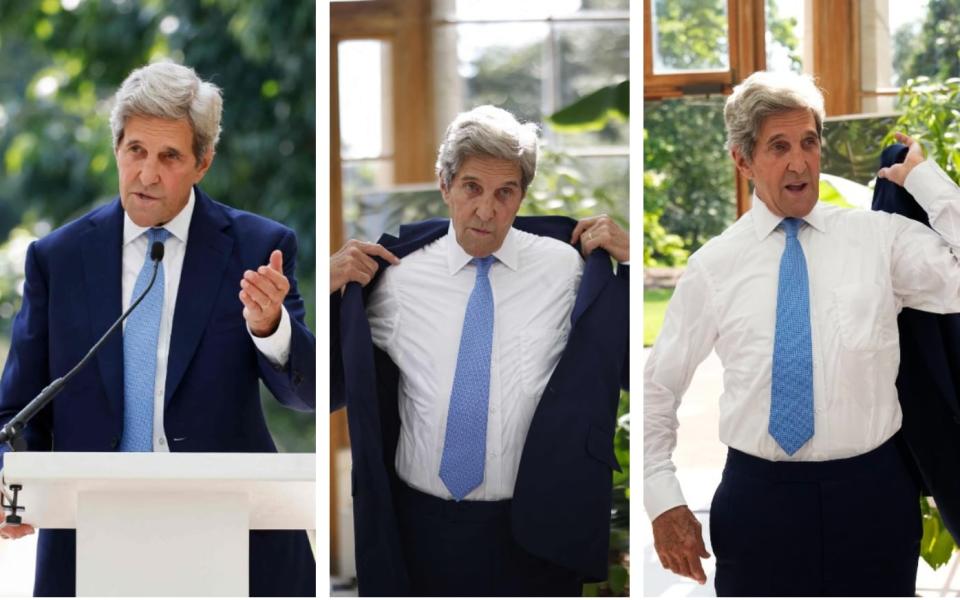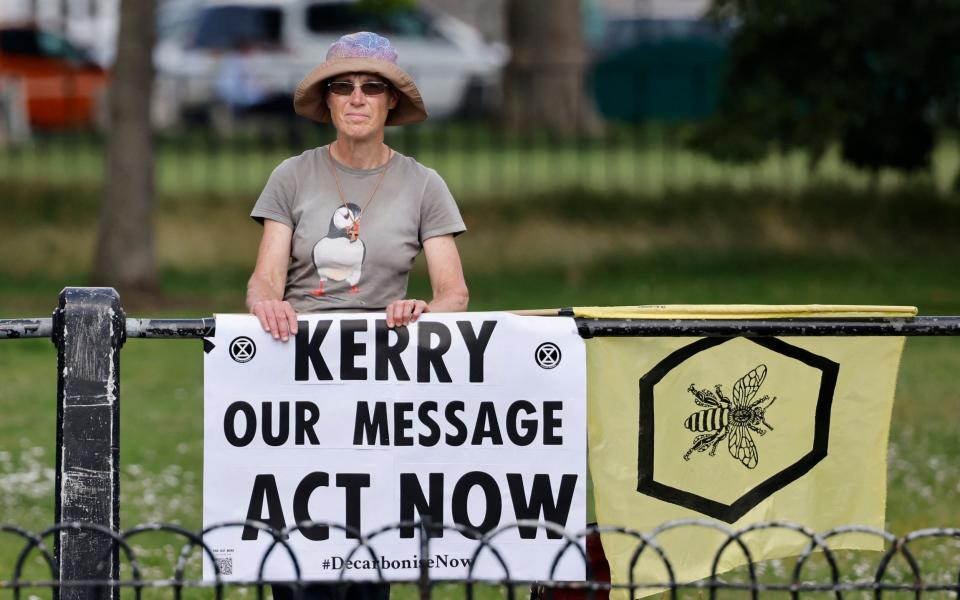Climate change: US and China must work together to end ‘mutual suicide pact’, says John Kerry

The US must work with China to avoid a “mutual suicide pact” of climate change, John Kerry said on Tuesday.
“There is simply no way – mathematical or ideological – to solve climate change without the full cooperation and leadership of a country that leads the world with 28 per cent of global emissions,” Mr Kerry said.
Mr Kerry, the US climate envoy, faces a delicate operation to work with Beijing while at the same time the Biden administration seeks to take a tough line on its human rights abuses.
He emphasised that it was specifically in regards to climate change where “cooperation is the only way to break free from the world’s current mutual suicide pact.”
Mr Kerry’s speech, in a fittingly sweltering conservatory at Kew Gardens, was made to mark 100 days until the Cop26 global climate summit, which he admitted would depend on successful collaboration with China.
He laid out a dramatic vision of a world “where whole countries would be destabilised from stalled economic growth, hunger and starvation” if countries fail to bring in changes that will keep warming at 1.5C or lower.
Commenting on the decision by the UK government to allow further exploration for oil in the North Sea, Mr Kerry pointed to recent analysis by the International Energy Agency that there should be no new oil, gas or coal development if the country is to reach net zero by 2050.

Mr Kerry evoked World War II several times during his speech, and drew parallels with the willingness of the US and UK to work with the Soviet Union against an “existential” struggle.
He also referenced Churchill when discussing the return of the US to climate diplomacy in the wake of the Trump administration, which he referred to as the “years the locusts have eaten”.
But he faced questions over when the US would bring out its own commitments to cut emissions, and whether developed countries would come up with enough funding to persuade developing countries to work toward climate action.

 Yahoo News
Yahoo News 